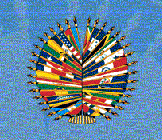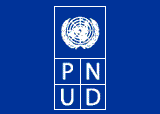AI INDEX: AMR 53/007/1999 2 July 1999
News Service: 128/99
AI INDEX: AMR 53/07/99
2 July 1999
VENEZUELA
Colombian refugees in Venezuela: Forcible return is a flagrant violation of national and international law
The Venezuelan authorities
must carefully assess all requests for protection
by anyone seeking asylum as a result of political
violence, Amnesty International said following
press reports that 700 Colombian refugees would be
forcibly returned to their country.
"The Venezuelan authorities cannot simply set
aside their international obligations towards the
hundreds of refugees fleeing paramilitary killings
and death threats in Colombia," Amnesty
International stressed.
"International law and Venezuela's own
constitution clearly recognize the right to asylum
of anyone facing human rights violations. Not a
single individual should be forced to return to
Colombia until their asylum request has been
carefully and impartially assessed."
According to the press reports, a Venezuelan army
general described the refugee's return to Colombia
as "imminent", and it could possibly take place
through the Venezuelan border town of Puerto
Santander. Fears for their safety are extremely
serious.
Despite this, 300 were reportedly returned in June
without having their situation assessed in a full
and fair asylum procedure, and at least 100 were
forcibly returned after having sought help from
independent human rights organizations to formally
request asylum in Venezuela.
Amnesty International also expressed profound
dismay at learning that their return was
apparently jointly agreed by the Colombian and
Venezuelan authorities without the participation
of the United Nations High Commission for Refugees
(UNHCR), and that efforts by UNHCR staff to assess
the refugees' situation were apparently blocked.
Under the principle of
non-refoulement -- recognised by the international
community as a norm of customary international law
binding on all States and established in several
treaties ratified by Venezuela -- Venezuela is
obliged to ensure that no person is returned,
directly or indirectly, to a country where they
would face serious human rights violations.
Implicit in this obligation is the necessity to
establish and ensure access to a satisfactory
asylum procedure to identify those at risk. Such a
procedure must include access to the UNHCR and
provisions for an effective appeal against
rejection of an asylum claim, whereby the person
is allowed to stay in the country while the appeal
takes place.
Furthermore, Venezuela -- together with other
members of the Organization of American States
(OAS) -- proposed the 1984 Cartagena Declaration
on Refugees, and should therefore apply the
broader definition of a "refugee" enshrined in
this Declaration, which recommends that refugee
status be afforded to those who have fled their
country because their lives, safety or freedom
have been threatened by, among other things,
generalized violence, internal conflicts, or
massive human rights violations.
"By blatantly ignoring the rights of these people,
the Venezuelan government has violated its
commitments under the Cartagena Declaration, the
UN Convention against Torture and Cruel, Inhuman
or Degrading Treatment, the International Covenant
on Civil and Political Rights, the UN Convention
relating to the Status of Refugees and Article 116
of the country's own constitution," Amnesty
International stressed.
Article 116 of Venezuela's constitution recognizes
"the right to asylum of any person who is the
target of persecution or finds him or herself in
danger for political reasons, and who fulfills the
conditions and requirements established by
domestic legislation and the standards of
international law".
Only three days ago, the UNHCR Executive Committee
of EXCOM in Geneva said: "UNHCR has underlined in
its demarches with the Government in Caracas -- as
well as with the Colombian authorities -- the
critical importance of upholding the fundamental
principles of international protection. In this
context... while UNHCR welcomes discussions
amongst concerned States on the implications of
cross-border movements, we should like to caution
against States resorting to speedy and unsafe
bilateral arrangements in response to the plight
of Colombians fleeing violence."
Background
In May 1999, a 400-strong Colombian paramilitary
force surrounded the rural district of La Gabarra,
Norte de Santander department, near the border
with Venezuela. The paramilitaries reportedly
killed at least five local peasant farmers,
threatened to attack the community and refused to
let the inhabitants leave. The paramilitaries
warned others, whom they detained and then
released, that they were going to take control of
the district and execute those they considered to
be guerrilla sympathizers or collaborators. On 1
June a Colombian local ombudsman reported that the
paramilitaries had killed up to 20 people and
abducted a further 15. The paramilitary incursion
was followed by clashes between Colombian security
forces and guerrillas, which are continuing.
Since the start of the offensive by Colombian
paramilitaries and security forces, some 3,700
Colombian men, women and children have fled across
the border into Venezuela, in four separate waves.
Those who crossed in the first three waves -- some
3,000 -- have already been returned to a part of
Colombia where they are not in immediate danger.
Most apparently returned voluntarily.
At the
moment, some 700 refugees are currently held in a
Venezuelan military post in the state of Zulia.
They have apparently been denied access to human
rights defenders and journalists. Amnesty
International does not know whether they have had
access to UNHCR staff.
http://web.amnesty.org/library/index/ENGAMR530071999


